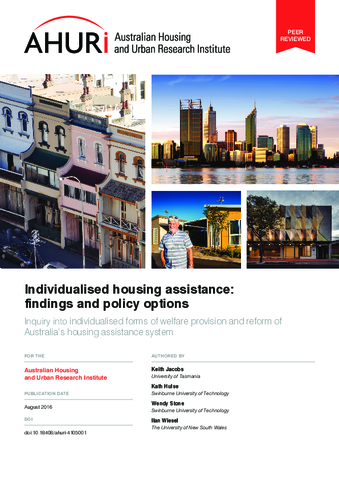This report presents the findings of an Evidence-Based Policy Inquiry that included three supporting research projects.
In practical terms, it is difficult to exercise choice in the private rental market due to shortages of affordable accommodation. Only government investment in addressing supply shortages will increase the choice for very-low-income and vulnerable households.
There is widespread support for more customised products and services, although some elements are controversial (e.g. allocations protocols, different lease lengths and diversity in rent setting). A move to individualisation of housing products and services requires careful attention to regulation and monitoring of standards as well as evaluation of the outcomes for very-low-income and vulnerable households. Tailored forms of housing assistance should have a prevention/early intervention focus, as well as provide for intermittent and ongoing needs.
Individualisation could involve clients having a greater say in developing more customised support packages, even without a system of support funding/personal budgets. Some vulnerable people would need support and advocacy in this process.
It is important to experiment with, and then evaluate the effectiveness of, new means of improving individualisation in housing assistance; obtaining the views of providers and consumers/clients is important in this process.


